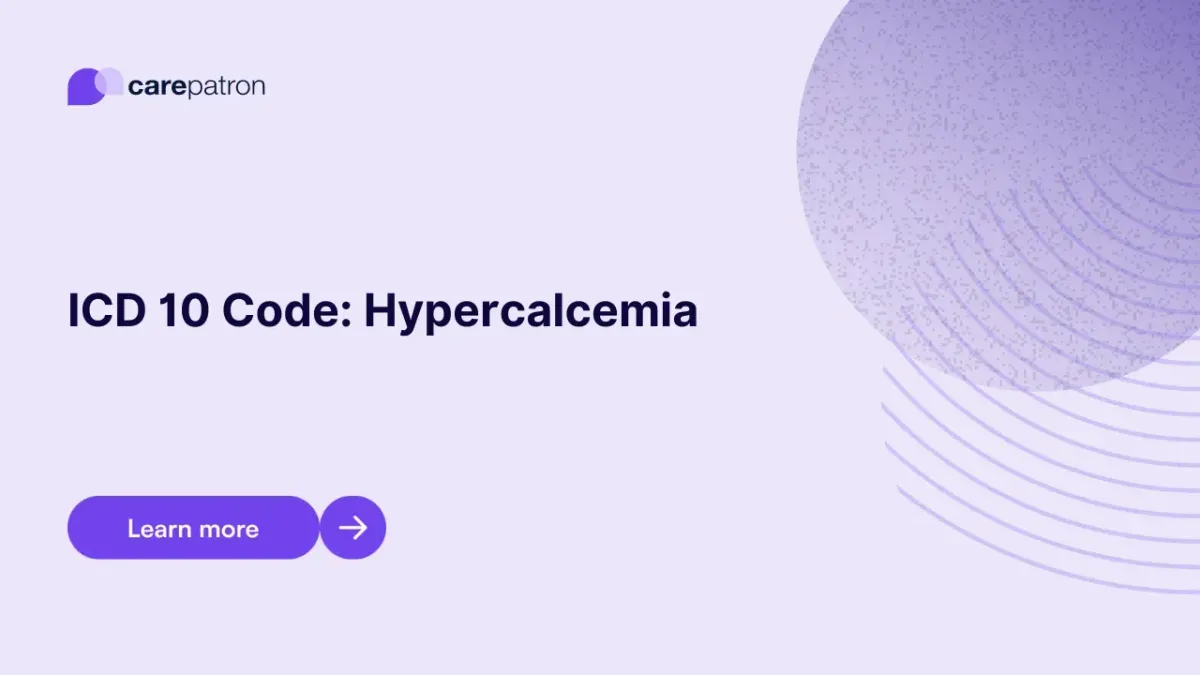
Hypercalcemia ICD-10-CM Codes | 2023
Read this short guide to learn about Hypercalcemia ICD codes you can use!
Use Code
Commonly asked questions
No. It only affects one to two percent of the general population.
The normal range for calcium in the blood is 8.5 to 10.2 mg/dL. If the amount is 10.5 mg/dL or higher, it’s considered Hypercalcemia.
They will conduct calcium blood tests, calcium urine tests, and imaging tests (e.g., ultrasound, CT scan, and nuclear medicine imaging).
EHR and practice management software
Get started for free
*No credit card required
Free
$0/usd
Unlimited clients
Telehealth
1GB of storage
Client portal text
Automated billing and online payments
